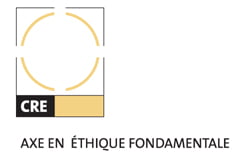
Ralph Wedgwood (University of Southern California)
2910 Boulevard Edouard-Montpetit
Montréal, QC H3T 1J7
Canada
Le GRIN est heureux d’accueillir Ralph Wedgwood.
Résumé/Abstract: “The Measurement of Value”
When one state of affairs A is in a way better than another state of affairs B, does it make sense to inquire how much better A is in this way than B? Is goodness amenable to any kind of cardinal measurement?
In the utilitarian tradition, it sometimes seems implicitly assumed that goodness is amenable to the same kind of extensive measurement as quantities like mass or volume. According to this assumption, goodness is like a kind of stuff, and inquiring how good the world is as a whole is like inquiring about the total mass or volume of this stuff in the world as a whole. It will be argued here this assumption is open to grave objections.
An alternative account is suggested. First, there is reason to think that goodness can be measured on an interval scale (not a ratio scale). Goodness seems to form a difference structure: we can meaningfully say, not only that one state of affairs is better than another, but also that the first state is “much better” or “slightly better” than the other. In other words, we can compare differences in value between pairs of states of affairs.
Secondly, the best explanation of this lies in a fundamental connection between value and probability. In effect, it is part of the job description of a value that it should play nicely with probability functions. Every value is capable of interacting with every probability function to provide a corresponding notion of expected value (according to that probability function). This requires that the value must have the kind of quantitative structure that can be captured by an interval scale.



